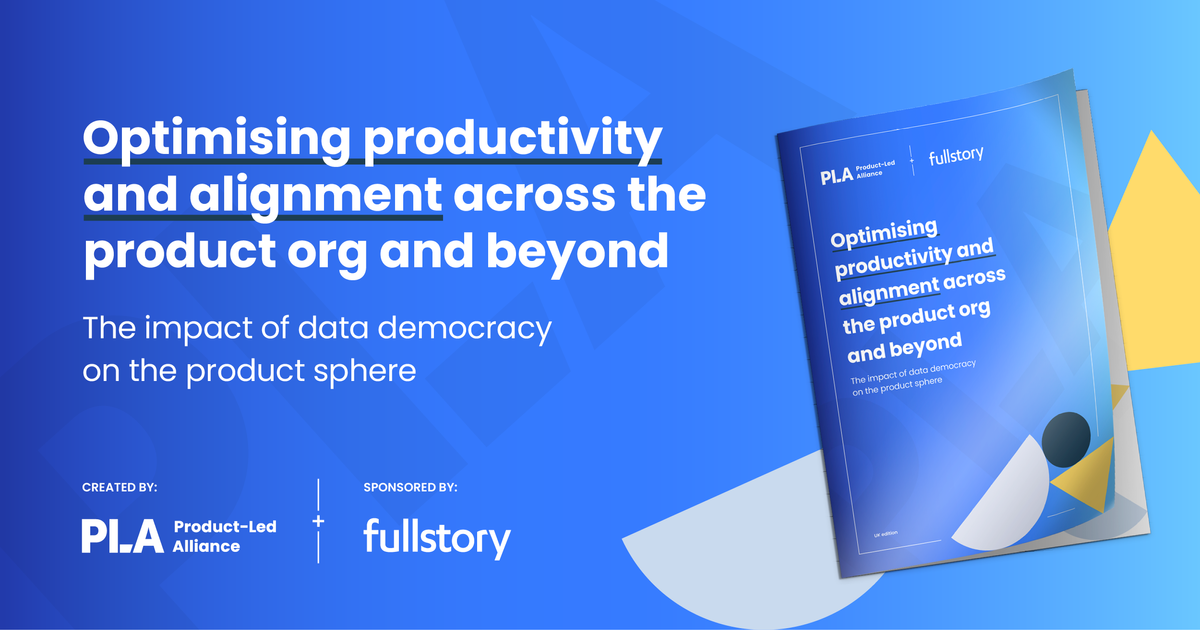In the age of information, organizations are navigating a paradigm shift by wholeheartedly embracing the principles of data democracy. This transformative approach not only unlocks the latent potential of data but also reshapes the dynamics of productivity and alignment within companies.
Based on this report by FullStory, we explore the multifaceted benefits that data democracy brings to the forefront, ushering in a new era of informed decision-making, collaboration, innovation, and adaptability.
Informed decision-making and collaborative synergy
At the core of data democracy lies the promise of informed decision-making. By granting relevant stakeholders access to actionable data, organizations empower their employees to make well-informed choices. The democratization of data tears down traditional barriers between departments, fostering a culture of collaboration that is scalable and impactful.
When employees from diverse areas seamlessly access the same data pool, they work together efficiently, exchanging valuable insights and perspectives that contribute to holistic decision-making.
Fueling innovation and enhancing transparency
Data democracy acts as a catalyst for innovation by encouraging employees to explore, experiment, and generate ideas grounded in data-driven insights. Access to data enables individuals to uncover valuable information and identify untapped opportunities, steering innovation in the right direction.
The transparency woven into decision-making processes enhances trust among team members. Understanding the rationale behind strategic choices promotes collaboration, laying the foundation for a cohesive and innovative work environment.
Customer-centric insights for tailored experiences
Democratized data propels organizations towards a deeper understanding of their customers—their needs, preferences, and behaviors. This invaluable knowledge empowers teams to tailor products, services, and experiences, aligning them precisely with customer expectations.
By putting customer-centricity at the forefront, companies can build stronger relationships, enhance customer satisfaction, and stay ahead in an ever-evolving market.

Empowered workforce: Fostering ownership and accountability
Data democracy nurtures a sense of empowerment and value among employees. When individuals have access to a shared pool of relevant data, they feel equipped to contribute unique insights and ideas based on data-driven evidence. This creates a culture of ownership and accountability, where every team member becomes a stakeholder in the organization's success. As a result, employees are not just contributors; they're empowered decision-makers invested in the collective progress of the company.
Adaptability in the face of change
One of the standout advantages of data democracy is its role in enabling companies to swiftly align and adapt to changing market conditions. Equipped with real-time data analysis capabilities, employees can identify emerging trends, patterns, and shifts in consumer behavior. This proactive approach allows organizations to act swiftly and assuredly, making data-backed decisions to navigate uncertainties and capitalize on emerging opportunities.
What happens when you don’t adopt data democracy?
In our exploration of data democracy's merits, it's crucial to understand the perils of neglecting this approach within organizations.
Siloed and biased decision-making
When data isn't readily available to all involved, decisions lack a holistic perspective, resulting in fragmented strategies. Siloed decision-making obstructs collaboration, causes delays, and prevents harnessing the collective wisdom of diverse teams. Control by a select few introduces the risk of biases, leading to flawed strategies and missed opportunities. Accessible data promotes overall alignment within the organization.
Decreased employee engagement and morale
Excluding employees from data-driven decisions diminishes their sense of ownership, engagement, and job satisfaction. This can result in decreased productivity, higher turnover rates, and challenges in attracting top talent. Failing to tap into the diverse knowledge of your team risks falling behind more data-driven competitors.
In essence, embracing data democracy is not just about benefits; it's a safeguard against pitfalls that can significantly impact organizational success.
The benefits of data democratization are extensive
The benefits of data democracy extend far beyond mere accessibility to information. They encompass a cultural shift within organizations, fostering collaboration, innovation, and adaptability. As the business landscape continues to evolve, embracing the principles of data democracy emerges not just as a strategic choice but as an imperative for organizations aiming to thrive in the data-driven future.
Don't forget to download the full report for more data democracy insight. 👇




